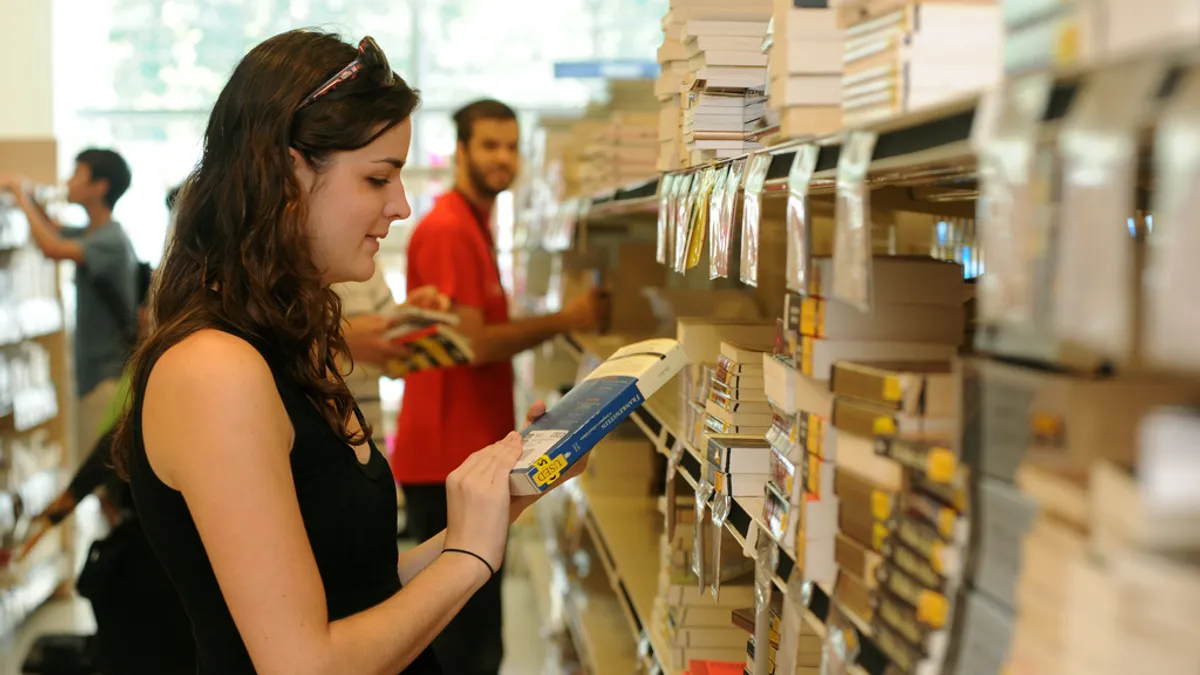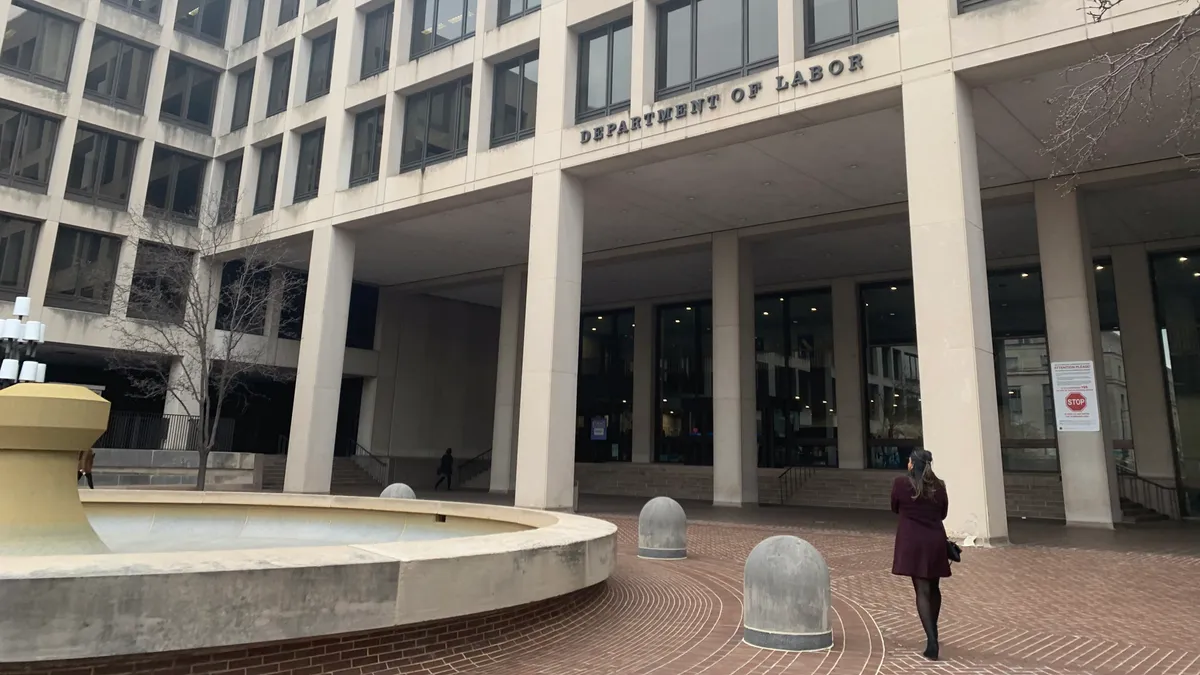Dive Brief:
- A Campus Computing Project survey of 2,900 higher ed faculty at 29 two- and four-year institutions suggests faculty concerns about digital course materials may slow their adoption.
- The survey, conducted for the Independent College Bookstore Association, saw 97% of faculty respond that their own assessment of materials was the top influencing factor in their adoption decisions, followed by cost for students at 86% and comments of students, teaching assistants or colleagues at 71%, eCampus News reports.
- Less than 50% of respondents agreed or strongly agreed that digital materials significantly added value over print, that students prefer them over print, that integrated analytics or reports would make them more likely to adopt digital materials, or that they have a beneficial impact compared to print.
Dive Insight:
Education as an industry can be notoriously slow to change, but it's worth considering a number of factors beyond simple instructor preference. For example, a significant number of low-income college students face food insecurity. A 2015 Wisconsin HOPE Lab survey of 10 community colleges nationwide found 20% of student respondents went entire days without eating a meal, and campus surveys at the City University of New York have seen those percentages as high as 40%. While digital materials are promoted as a cost-effective alternative to print, it's worth considering whether all students have the same steady access to devices or even Internet connections off campus, and whether they can afford to address that when they're having trouble simply affording food.
The growing market for digital course materials has also seen bookstores at many institutions faced with questions of how to adapt. Some have coped with the availability of cheaper online retail options and digital alternatives by focusing on occupying smaller spaces centered more on the sale of university-related paraphernalia. Other institutions, like UMass Lowell, have converted spaces formerly occupied by bookstores into spaces for maker or other educational use, or providing a space where faculty and students can sell custom products to the campus community.









